
by Rachel Toalson | General Blog
Some men don’t recognize the many perks of being a dad.
My husband, though, gets to spend half his day hanging out with our boys while I work, so he understands them quite well. He knows that kids will always prefer their mamas (at least when they’re young), but he has the opportunity to be a few things in their lives, too.
Namely:
1. A human jungle gym.
My husband likes to spread out on the floor and read books aloud or silently during our evening reading times. Every single time he does it, my boys climb on top of him. There are elbows and knees and chins everywhere. And I mean everywhere.
When he’s standing still, they’ll wrap their arms and legs around his feet and shins and “ride” to the dinner table. At bedtime they’ll fight about who gets to climb on his back for the horse ride to their room. When he comes home from work they’re already barreling toward him.
Not too long ago, when I fell down our stairs and broke my foot, my husband carried me out to the car so we could go get it X-rayed. He injured his back in the process (you have to bend your knees, honey. I’m heavier than I look. You know, all that baby…muscle.)
When he saw the doctor about his back, the doctor told him it should be treated like any other injury. He should rest it. That night he stretched out on the floor to read a story (as if daring the powers that be), and one of the 3-year-olds did a cannonball onto his back.
Good luck with the resting, dear. That back pain just might be around forever. Small price to pay, though. At least you still have your bladder function.
2. The yes man.
My kids go to their daddy when they want a yes.
“May I use the scissors to cut this paper into tiny little pieces you’ll never be able to clean up?” they ask. (Not really. They only ask for the scissors. But a mom always knows what that means.)
“Yes, as long as you clean it up,” he says.
Yeah, right.
Our twins have bladders the size of walnuts. We remind them to go potty before we sit down to dinner, because if there’s one thing I hate (there are more, I promise), it’s interrupting dinner with a bathroom break. And yet, inevitably, after they’ve used the potty and have been strapped in their booster seats for all of three bites, this is what happens:
Twin 1: I need to go potty.
Me: You just did.
Twin 1: I need to go again.
Twin 2: Yeah. Me too.
Me: Of course you do.
After this annoying exchange, I’ll usually say something like “I’m sorry. You’ll have to wait until after dinner,” because the time it takes my boys to inhale their food is only about 16 minutes, if we’re lucky. If we’re really lucky and we’re having pizza, it’s about 17 minutes, because they just keep inhaling until it’s gone.
And then the twin will say, “I not talking to you. I talking to Daddy.”
Because, apparently, they’ve caught on to the fact that he doesn’t really pay attention to conversations like the one above.
(This is changing. My husband’s response now is “What did Mama say?” No more yes man, twins. Sorry you don’t get to go potty three minutes after you already went.)
3. The I-don’t-care man.
My husband takes things in so much better stride than I do.
“I used all the computer paper,” the 8-year-old says. “But look at all these airplanes I made.” (One hundred of them.)
“Wow,” my husband says. “That’s a lot of airplanes.”
Where I might have said: “Well, you’re going to buy us a new package of computer paper, because I need that paper to print the second draft of my book in a couple of months.”
I will cry over spilled milk and gripe about dinners wasted and stress about the lost library book, because we just paid for a lost book last week, and we can’t keep doing this. But my husband just lets it roll right off. It’s a little maddening. And also refreshing.
4. The Rule Relaxer.
Once a month I get together with a group of ladies to discuss life and work and the book we’re supposed to read that month (but don’t always get around to). This is Daddy’s time to shine.
When I come home from these book club nights, at least two of my boys are passed out in the library, where they’ve been reading since he “put them to bed,” one is still working on a picture book in his bedroom with the light on, and two others are sleeping nearly on top of each other in a massive pile of blankets, trying to get closest to the sliver of light streaming through their door.
On the mornings he watches them they know they’ll get blueberry muffins with real sugar instead of honey or pancakes with extra butter or a lunch that doesn’t have any vegetables. It’s like a surprise vacation for them.
5. The Life Speaker.
Dads have this amazing ability to be a life-speaker in the worlds of their children. My husband does this well.
When the 3-year-old stood up in his chair for the six billionth time during the same five-minute stretch of dinner and I wished, for the six billionth time, that I had my voice recorded so all I had to do was press a button to hear, “Sit down on your bottom,” he executed an epic fall, his legs and head facing straight up and his body caving toward the floor in the perfect pilates butterfly (if a little crooked).
My first thought, on seeing him, was, “If you had been sitting in your chair like I told you, that wouldn’t have happened.” But the only thing my husband did was comfort him about how much it hurt to fall out of a chair he was standing in. And then he brought the lesson home.
A much better way to discipline, I think.
When Daddy is on duty, my boys get to watch more television, eat popcorn for lunch and change their clothes as many times as they want. I used to hate all these seemingly huge inconsistencies until I remembered how fortunate they are to have a loving dad in their life.
So many kids don’t.
My boys will never be the same because of their daddy. Their lives are richer for his presence and care.
I’m so very thankful he recognized the perks of being a dad.
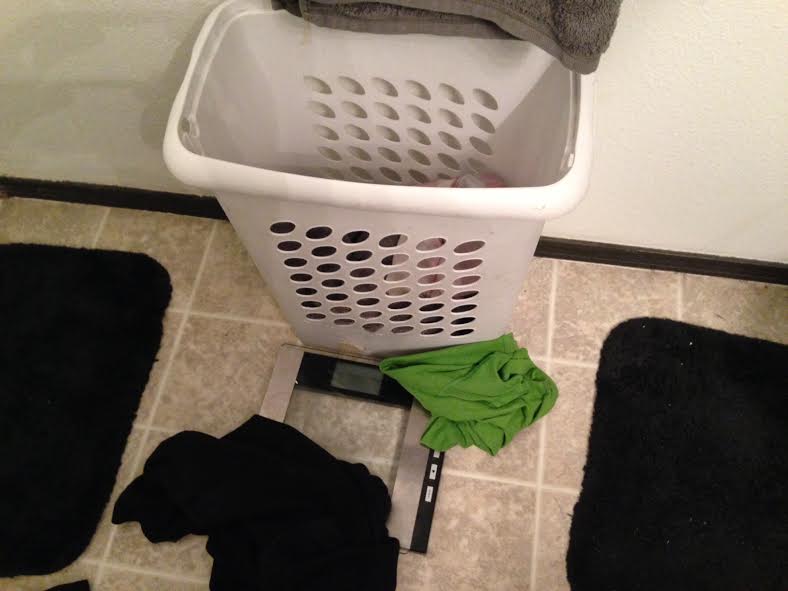
by Rachel Toalson | Messy Mondays
This right here is the story of my life. Clothes. And hampers. And clothes that don’t make it in hampers.
We have laundry hampers stationed strategically around our house. There is one downstairs because boys strip as soon as they get in the door. There is one in the hallway between their rooms because their bathroom is too small to hold one. There is one in their daddy’s and my bathroom because three boys use our tub to save on bath time.
And yet there are still clothes on the floor.
This picture was taken after my 8-year-old’s bath last night. That white thing? That’s the hamper. The green shirt is touching the hamper. IT’S TOUCHING THE HAMPER. How much more effort would it have taken to get the shirt IN the hamper?
Apparently too much.
I don’t get it. I really don’t. Well, at least not until I walk back into our bedroom and trip over a pair of my husband’s jeans he left on the floor instead of tossing in the hamper.
Methinks I’m fighting a losing battle.
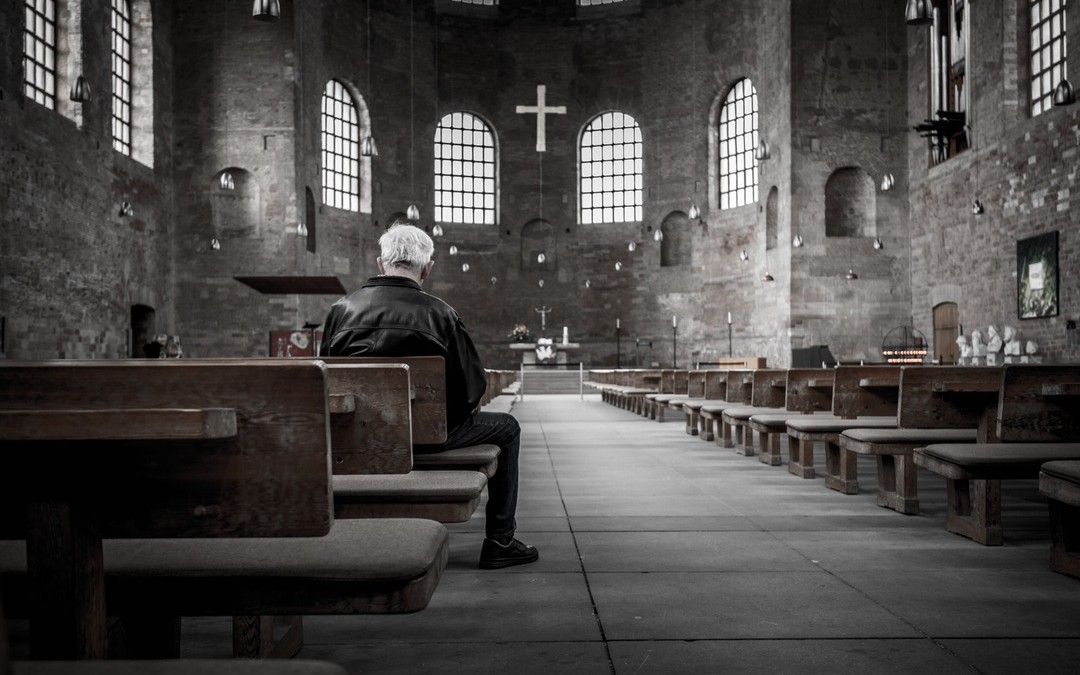
by Rachel Toalson | Wing Chair Musings
We’ve just gotten back from the doctor, because, for days, my throat has held barbed wire or shards of broken glass, and my fever is out of control and I’ve lost two work days to sleep.
We’re turning onto the street that leads to our house, shaking our heads at the strep throat diagnosis, when the air conditioner on the van—the only vehicle we have—stops working, and a noise starts following us home.
A noise that means something is wrong with our van.
My husband spends hours trying to figure out how to take out an old, messed-up compressor and put in a new one—a new one he bought with a credit card, because God knows we don’t have it in our checking account.
All this after breaking a foot and having sick kids and logging two months without any steady income, just side jobs here and there, and I tell a friend, “Sometimes I feel like the universe is just throwing one thing after another in our path, asking us how resilient we are. And all I want to do is hold up my middle finger.”
Five months ago we had our sixth baby. Two days after he slid into our lives, I was laid off my job. We blew through the severance (since the job never paid that much anyway). There used to be savings, because I always obsessively saved, making sure we lived on the lowest dollar possible so we could hide money away for a moment like this one. But here we are, with that buffer nearly gone, and fixing the car will take more than we’ve pulled in this month. Again.
My anxiety is so high I have a panic attack every time I think about the electric bill and the mortgage and what it takes to feed six boys in the summer. Usually those attacks come late at night, when I’m trying to fall asleep and those ugly words wrap around my neck: How are we going to do this?
I feel sad and terrified. Mostly I feel angry. Angry that we’re here, angry that the plans we believed were God’s plans don’t seem to be working, angry that God’s promises don’t apply to us.
We didn’t use our money selfishly. We gave generously to the church. Even now, even when we’re pulling in zero income ($300 on a good month), we’re supporting some missionary friends and six World Vision kids so they can have a better future—because no matter how quickly it makes the backup money run out, I can’t stop doing it. I can’t.
We’ve given everything to follow the call God put on our lives, and yet here we are, talking about the very real possibility of selling our house to keep ahead of the bank. I’ve never felt so angry in my life.
///
A month ago, I walked up to the front of my church, where those prophetic prayer people waited, and I swallowed the pride that gets in the way of asking for help, and I asked for help. Prayer this time. I could handle asking for prayer, if only barely. More than prayer? No way.
“I get this picture that you are not sitting at God’s feet waiting for an answer,” said one of the women, a good friend of mine. “I see you grabbing onto his collar and screaming your desperation into his face.”
I just nodded, not daring to speak, because, yes, that’s exactly what I did that morning. Exactly what I’ve done every morning for the last four months. Shouted at him. Screamed at him. Cried, raged, begged.
And every morning there is NOTHING.
My friend also said there was such great pain in this foggy season not because the money wasn’t steady (or there, really), but because something in my childhood had felt exactly like this, too. And at first I tried to ignore that piece of it, because what’s important now is trying to figure out a way to feed my family, not trying to heal some old childhood wound.
We got home, and it was time to balance the checkbook, and I opened the email with the electric bill. The bill was $143.18.
An old friend of ours used to believe the numbers 143 were God’s way of communicating with us across time and space. I love you, they said. 143. But there was a bill and a checkbook that didn’t have enough money to pay it, and what did that mean for me?
I started crying, shaking my head, saying the only thing I could think to say. “But do you really, God? Because this doesn’t feel like love. It feels a whole lot like abandonment.”
Sometimes numbers are just numbers.
///
When I was just a girl, three years old, or four, maybe, my mom and dad took my brother and sister and me to a water park. Or maybe it was just a neighborhood pool. My memory gets fuzzy with some of the details. Others are crystal clear.
My sister was a baby, so she stayed off to the side with my mom, while my dad told my brother and me that we could go down the massive slide on the other side of the pool. It was a tunnel slide, with all kinds of twists and turns. I watched my brother slide down so my dad could catch him. I was content to watch, too afraid to try. But my dad wanted me to try.
He walked me to the top, sat me on his lap, and wrapped his arms around me. He said, “I won’t let you go.” Then we were tearing down the slide, and the bottom was getting too close, and I was screaming terror.
A tower of water slammed into us. And my dad let go.
He let go.
///
He would let go in other ways over the years. There would be the day he decided he wanted a new family and all those days after, passing without a single word from him. There would be birthdays and graduations and an aisle I would walk down on the arm of my stepfather, who was as proud as any father could be.
When a parent leaves and doesn’t look back, what he’s saying is, Figure it out on your own.
Figure it out on my own. How I wish I could.
It’s not surprising that I would have this picture of God, too. That there were more important people for him to be concerned with. That I did not matter in the lineup of human beings who needed him. That he could not be bothered with remembering my birthday or paying my mortgage or making sure my kids were cared for.
And then came this last son, born the day before my birthday so God could remind me that, look, he gave me the greatest gift a mama could ever get: another son. I was not forgotten.
Except all those months came after his birth, and, with them, hit after hit after hit, and I could barely lift my head from the floor, because this didn’t feel like love.
THIS DOESN’T FEEL LIKE LOVE.
I feel abandoned. I feel forgotten. I feel wrong, like maybe we were selfish to have so many children or pursue our dreams or try to build our own businesses or use our gifts or make a way where there was no way.
I certainly don’t feel brave, the kind of brave needed for something like this. I feel like a little eleven-year-old girl who’s wondering if her daddy is going to come through for her.
And he never did.
///
We did not plan for everything.
Some would say we made our bed and now must figure out how to fit in it. And maybe it’s true. We chose to have six children, even though we could not have seen what might happen two days after our sixth was born. We chose to turn down that job offer my husband got a year ago because we thought we needed to stay at our church and heal a little. We chose to believe that God would take care of our needs instead of planning how to afford six kids on paper.
Now I can’t help it. I feel cornered and trapped—and that makes me fighting-angry.
On my best days I shape thousands and thousands of words into essays and songs and poems and stories. On my worst days I sit around thinking maybe we shouldn’t have had so many children.
Which one would I have given back? That answer’s easy at least. Not one of them.
All my life I’ve heard these stories of other people falling on hard times and then—miracle of all miracles—that giant check comes just in time at the end of the month, and there you go.
There you go. All neat and pretty. They’re blessed people. And if they’re blessed people, then that makes us…not blessed people—because on the last day of last month, we transferred half the remainder of our savings into our checking account to pay for our most basic needs, make sure our kids had food to eat, keep a roof over our heads for another month.
“It’s so hard to understand,” I told my mom the next day. “After so many years of giving ourselves to God’s mission and ministry.”
Makes a person not ever want to do mission and ministry again. That’s the part I didn’t say out loud.
///
“God will provide,” they say. “God will make a way where there is no way,” they say. “Don’t worry about tomorrow,” they say. “God will meet your needs.”
What about when he didn’t? When he still doesn’t?
Does that make him any less sovereign? Any less great? Any less merciful or loving or kind?
My head wants to say yes. Yes, it makes him less sovereign, great, merciful, loving, kind. Yes, it makes him cruel and uncaring and just like the earthly father who let go.
But my heart knows the answer.
No. God is the same today as he was yesterday. He does not change because of my circumstances or my feelings or even my knowledge or lack of it.
So what does all this mean?
Well, I wish I had a neat and pretty answer for you. But I don’t, because our story isn’t over. We are still navigating through this mess, and we don’t know how it’s going to end. Not yet.
All I know for sure today is that love sometimes does what’s better instead of what’s easier. My kids remind me of that every day.
I guess I know something else, too. One day the anger will fade. One day I will know how this ends. One day I will be on the other side.
Just not today. Today is for walking, one step in front of the other, trying not to trip.
Pressed but not crushed. Persecuted, not abandoned. Struck down, but not destroyed.
Never that.
This is an excerpt from We Count it All Joy, a book of essays. For more of Rachel’s writings, visit her Reader Library page, where you can get a couple of books for free.
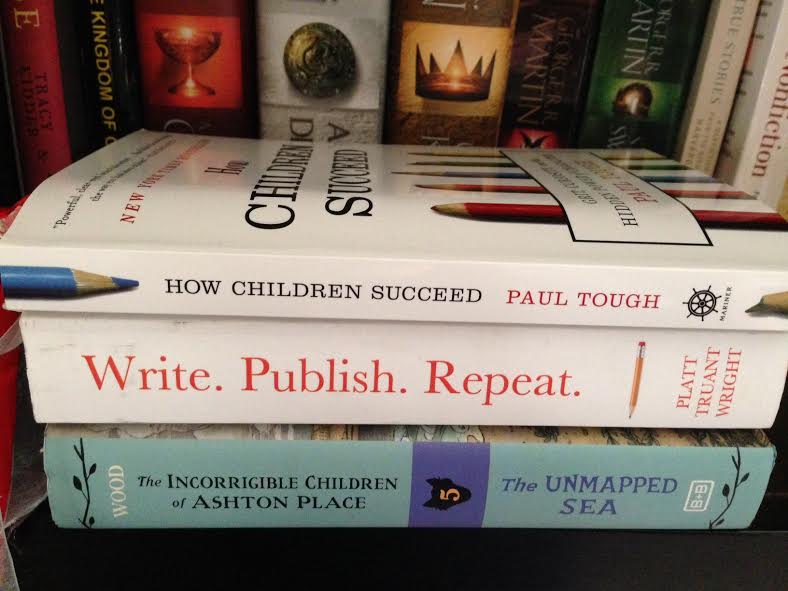
by Rachel Toalson | On My Shelf
On my shelf this week:
How Children Succeed: Grit, Curiosity, and the Hidden Power of Character, by Paul Tough
Write. Publish. Repeat. The No-Luck Required Guide to Self-Publishing Success, by Sean Platt and Johnny B. Truant
The Unmapped Sea (The Incorrigible Children of Ashton Place), by Maryrose Wood
This week I’m reading a fascinating book on how children succeed, written by a journalist who looks at the characteristics that helps kids succeed in spite of stress in their lives. I’m only early in the book, but already it is filled with research and valuable information for parents and educators. The writing book was written by the hosts for the Self Publishing Podcast, who produce an astronomical amount of literature on a weekly basis. I wanted to know their secrets. And the last is the newest book in one of my favorite children’s book series. We’re reading it aloud as a family. The Incorrigible Children of Ashton Place are fantastic read-alouds; Maryrose Wood writes with such personality that the narrator gets to have a voice. My boys love these books.
Best quotes so far:
“What matters most in a child’s development, they say, is not how much information we can stuff into her brain in the first few years. What matters, instead, is whether we are able to help her develop a very different set of qualities, a list that includes persistence, self-control, curiosity, conscientiousness, grit and self-confidence.”
Paul Tough
“Scientists have reached a consensus in the past decade that the key channel through which early adversity causes damage to developing bodies and brains is stress.”
Paul Tough
“It is in early childhood that our brains and bodies are most sensitive to the effects of stress and trauma. But it is in adolescence that the damage that stress inflicts on us can lead to the most serious and long-lasting problems.”
Paul Tough
“Complete product funnels, done correctly, are where most of your money will come from.”
Sean Platt & Johnny B. Truant
“We believe you should write what you want but think you should do so within a framework of intelligent strategy, always considering how to reverse-engineer the market’s expectations after you’re done to get the most bang for your buck.”
Sean Platt & Johnny B. Truant
“When the impossible becomes merely difficult, that’s when you know you’ve won.”
Maryrose Wood
“That is the purpose of museums, of course. One does not go merely to collect facts and souvenirs and picture post cards, but to enlarge one’s notion of all that has been, and all that is, and all that might be. In this way we begin to understand what part each of us was born to play in the marvelous tale of existence.”
Maryrose Wood
Read any of these? Tell us what you thought.

by Rachel Toalson | Fiction in Forty
They say that tunnel was haunted. They say you could see faces in its black, bodies, walkers who shouldn’t be walking. They say you could hear the screams of the boy who never came back out.
He was my brother.
Ongoing challenge: Find (or take) a picture. Write exactly 40 words about it. Post.
(Great practice for brevity.)
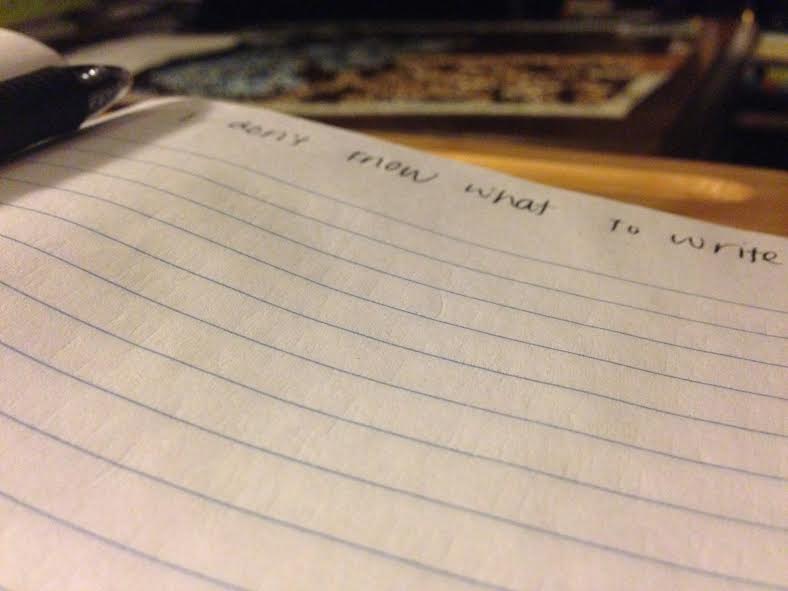
by Rachel Toalson | This Writer Life
I don’t believe in writer’s block. I do believe that sometimes our mental capacity for our work just dries up.
There are many reasons why our mental capacity to write can dry up. Sometimes we’ve been working too hard on a project, emptying ourselves but not filling back up. Sometimes we’re just too overwhelmed, with other day-job responsibilities or home responsibilities or child responsibilities. Sometimes it’s just not time for a project we’re trying to force.
Whatever the reason, it’s important to remember that writing is painful, if we’re doing it the right way. It’s never easy to open the shades on our inner lives, which is what we’re doing with both fiction and nonfiction if we’re writing it authentically.
We cut and bleed onto the page, and it’s hard work, that cutting and bleeding. If we think it’s easy, we may as well laugh at ourselves right now, because it’s not. We don’t always want to do it. We don’t always love it. We don’t always know why we’re doing it. We just know we have to.
Sometimes I sit down with my notebook open (because I write everything by hand first), and the words come so easily I don’t even really have to try. And other days I sit down and I can find nothing to say, even though I planned the topic a week ago and have given my subconscious ample time to thin it over and contribute to the in-my-head brainstorm that’s always churning.
Writing is not for the weak.
If we have to write because it’s who we are and it’s how we process the world and it’s the way we share our gift with the world, how do we prevent ourselves from getting stuck?
First we have to recognize we’re stuck.
Here’s what stuck looks like:
1. We’re writing in circles, not really saying much.
2. We’re writing shallow, without any depth.
4. We’re writing rough, never writing our way toward a final draft.
3. We’re not writing at all.
And then we have to identify the reasons we’re stuck and address them.
Here are some reasons we might find it hard to fill a blank page:
1. We’re overwhelmed.
Sometimes the demands of our days are just too much. Sometimes we can’t juggle all the kids and the writing and the laundry and the dishes and the dinner cooking and…
It all weighs so much, and sometimes it all looks really ugly, because kids are sick or we didn’t get enough sleep or a deadline is looming. Worry and anxiety are killers of creativity.
What we can do: Ask for help.
I used to think I had to do it all by myself, that I had to earn some badge that made me “Super Mom.” I didn’t need the help. I could handle it. And then I broke my foot. I had to ask for help all the time, for the littlest things.
Life has a funny way of showing us truth.
If we want to pursue a successful career and still care for our children well, we are going to have to ask for help. And we are going to have to take time away from it all—the writing, the children, the home stuff, the day job, everything. We cannot write well if we are walking around with a fever of overwhelm. We have to unload. Go for a walk. Call a babysitter. Lie in bed and stare at the ceiling. Discover meditation. Whatever it takes to feel less overwhelmed.
Our writing needs space. Let’s give it that.
2. We’ve been working too hard.
In her book The Artist’s Way, Julia Cameron recommends that artists take an “Artist Date” every week, in addition to a daily walk. Her point in this is that many times we can often get so focused on work that we forget to play.
What we can do: Cancel work and go play.
It’s a worthy act to play. Play frees our mind and allows our subconscious to move in and take over. Especially when we’re stuck, this can mean a story writes itself while we’re playing Candyland with the littles. Get out those board games. Have a dance party in the middle of your living room. Run around the backyard in an epic game of chase. Not only will you feel inspired, but your children will love it, too (especially if you tell them, “I’m working. Let’s go play.”).
3. The internal editors have come to visit.
This is one of the most common reasons writers get stuck in their work. We sit down to write a paragraph or two, and the only thing we hear is, “That’s not good enough. No one will ever read that. You shouldn’t even waste your time.”
Here’s the thing: WE MUST BEAT THESE INTERNAL EDITORS.
We must beat them. They cannot tell us who we are or what we need to do.
What we can do: Write rough drafts every single day.
I’ve learned to beat my internal editors. I get up early every single morning, and for the first half hour of my day, I write. Three pages, college-ruled, black pen, I just write. I write about my worries and I record my complaints and I think of new writing ideas and I write all kinds of random thoughts in this “morning journal.” It’s fragmented and rough, and sometimes my thoughts don’t even really make sense, but that’s okay. All I’m doing is racing the internal editors. Because once they learn they can’t beat you, they’re gone.
So write consistently and often. Write rough. Write about anything in the world. Just keep the pen moving.
4. We’re not present.
One of the most often problems for me is when I’m walking through my life distracted—thinking about that new project I want to work on, working out a plot line in my head, trying to remember what the grocery list had on it. All of this “cerebral living” makes it hard to experience the moment.
And when we’re not experiencing the moment, we’re missing out on some really valuable inspiration all around us.
What we can do: Set a reminder to stay present.
If we have trouble with this one, we can set a timer at different intervals during our day. When the timer goes off, look around and soak in the moment. See the kids playing. Watch the birds outside. Breathe deeply and smell the chicken roasting in the crockpot.
5. It’s just not time for that project.
For years now I’ve been “working” on a fantasy story about a magician named Rindelman. My husband even drew a picture of the magician so I’d have it as a reference. I have the characters all planned out. But every time I sat down to flesh out the plot, I just couldn’t.
New projects would come knocking, and they all felt so easy. I finally realized that Rindelman wasn’t ready to tell his story. This story has been waiting for years, but I know he will eventually tell it. Jus tnot right now.
What we can do: Evaluate the project.
Do we feel passionately enough about it? A book written without passion is just a mediocre project. We can do better than that. Put the idea aside and try again sometime.
I know how hard it is. This is my biggest struggle as a writer, deciding what’s next. I have so many ideas, and I want to do them all yesterday. But timing is so important. If we’re not allowing the book to tell itself in its own timing, we can’t expect a project to be very good.
That old adage “waiting is a virtue?” Well, it’s a virtue for a reason. It means better work when the time finally comes.
6. We might be burned out.
When we’re working too hard, our brain just gets fatigued. We can’t expect it to work endlessly without any rest.
What we can do: Build in some regular rest.
Every seventh week in my writing work, I take a Sabbath rest (in fact, next week is one, and you won’t see any new writing on this page for the whole week). I don’t write any of my normal stuff but allow some space to write some new stuff or not write anything at all. Sometimes I sew or do puzzles. Sometimes I take long naps. Sometimes I spend the whole day with my children.
Rest is so important in the life of a creative. We don’t like to think about it, because we’re writer parents, and it’s important to use every waking moment, especially if we’re working a day job. Isn’t it?
Rest is how I avoid burnout. As writers, our lights are so bright. If we shine them for too long without turning them off, we’re going to burn out.
Feeling stuck in our writing can make it seem impossible to write consistently, but there’s another thing we have to remember:
We are never more stuck than we allow ourselves to be.
This is not a forever-stuck. It’s just a temporary stuck.
Writing will never be easy. Of course it won’t. But with some simple precautions and solutions, we can ensure that it’s richer and better.
That’s a worthy pursuit.
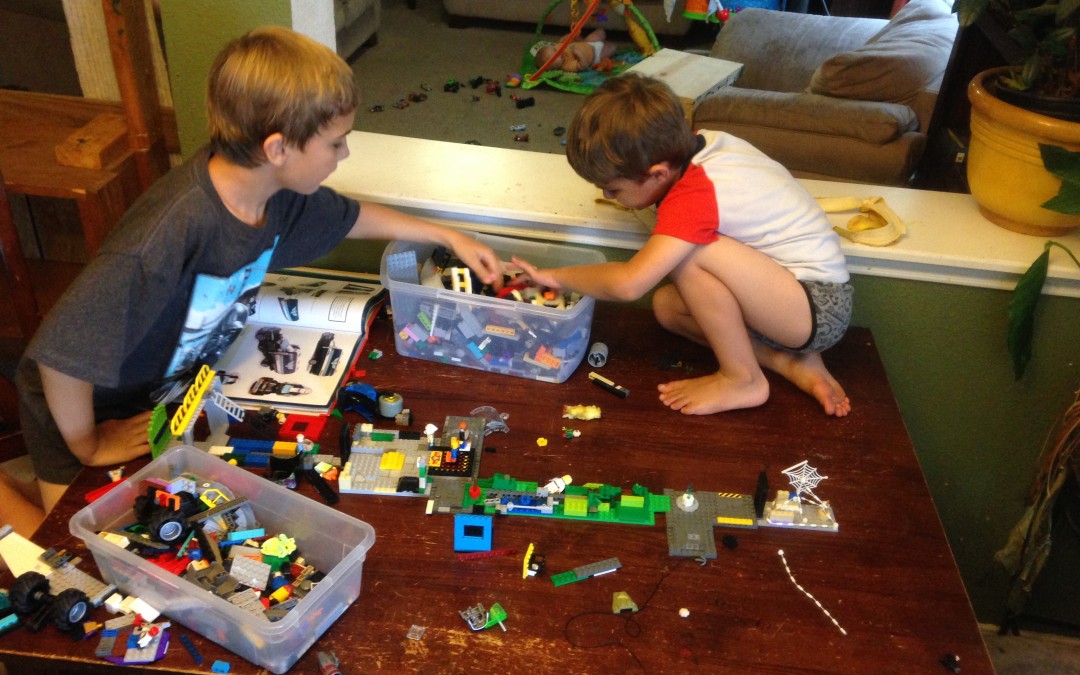
by Rachel Toalson | General Blog
It’s the fourteenth time he’s come to our room tonight, and we still have to get up at 5 in the morning to get anything done, so his daddy leads him out and says, “It’s time for you to go to bed, for the last time.”
“But I don’t have school,” he says, as if we didn’t just have this conversation fifteen minutes ago. “It’s my summer break.”
Oh, well, in that case, why don’t you stay up all night, and, while you’re at it, go ahead and disregard all the rules, because IT’S SUMMER VACATION!
When I tilt my head and squint my eyes just so, I can almost understand why they would equate summer vacation with do-whatever-I-want time, because summer means they are no longer trapped at school for seven whole hours, listening to someone else giving instructions. They don’t have to write their name on fifty math or reading or science worksheets, and they don’t have a half-hour time limit on lunch and they don’t have to finish all their work before they get to do the fun stuff like reading and drawing and playing.
But what’s getting old in my house is that every day there’s another fight—not because we’re coming up against new territory. No. We’re coming up against the same old territory that the boys have forgotten because apparently summertime is synonymous with short-term memory loss.
Dang summertime.
Sometimes I wish summertime meant exactly what they think it means—relaxation of the rules. I really do.
But last time I relaxed the rules and let them have a little more freedom, they pulled out the economy-sized glitter I didn’t even know we had for some horrifying glitter projects we’re still cleaning up. Also, the 8-year-old somehow climbed to the top of the bathroom door, where he positioned a cup of water so it would fall on someone’s head when they opened the door. And someone else put thumbtacks in the twin’s booster seats.
So no. Rules still intact.
I wrote a note for my boys, reminding them of the most-frequently-forgotten rules. Feel free to use this letter as many times as you need. I’ve already read it to them twenty-six times, because that’s how often they’ve forgotten.
Dear kids,
It’s summertime. Not I’m-a-grownup-now time.
Unfortunately, that means there are still rules in our house. Here are some you seem to have forgotten.
1. No, you may not snack all day.
We just had breakfast, and you ate twelve pancakes and five eggs. How in the world are you still hungry fifteen minutes later? That’s called boredom, son. Boredom is not a good excuse to eat. Get thee outside. Thou shalt dig in some dirt. Or do art (without glitter). Or read one of your books. Or chew on your fingers. Whatever keeps you out of the refrigerator. Because, good Lord. The grocery store only has so much food.
2. Close the door behind you.
This rule has been in place since you were old enough to walk, but you’ve conveniently picked now, when it’s so hot it’s painful to wear clothes, to forget? That’s called irony, kids. It’s ironic that you’ve forgotten how to close a door in the middle of summer.
Here. I’ll help you out. Closing is the opposite of opening. So, if you pull the door to open it, you’ll push the door away from you to close it. Push it away from you. Away from you. Away from you. There. Hear that sound? That’s the sound of a door closing. Amazing, isn’t it?
Now that we’ve had this nice little refresher, next time you leave the door open, I’ll take a portion of the electricity bill out of your college fund. You won’t be laughing when you’re 18 and you don’t have enough money to pay for your first semester of books (because, by the time college rolls around, that’s about what the money we’ve saved will be worth. If you keep forgetting the close the door, it’ll pay for your first dinner out.).
3. No, you may not stay up all night.
Believe it or not, even though you’re not going to school for the time being, we are still concerned that you get enough sleep. Because we love you, and we know sleep is important for you to grow and function well. Also (mostly) because you turn into a horrid monster when you haven’t had enough sleep. So turn out the light. Put away the book.
And for God’s sake, stop coming to our room when we’re almost asleep, asking if we remember where you left your special pencil with the blue eraser. Some people want to get some sleep around here.
4. Things that were not allowed before are also not allowed now.
This would be things like walking across the table with dirty, dirty feet, getting five games out that, all together, have a total of forty-thousand pieces, sneaking onto the computer to play your Cool Math game when a parent is not present and before you’ve earned your technology time.
Nope. Still not allowed in summer.
What? Every other kid gets to do what you can’t? Well, it’s too bad those aren’t your parents. Huh. You got stuck with us. It’s a hard knock life.
5. Any mess you make, you still clean it up.
What’s that? You dumped out all the glitter on accident? Well, it’s a good thing you know how to wipe off a table and sweep a floor, so get to it.
Wait, you want to play outside with your friend, but you were playing throw-them-in-the-air-and-see-where-they-fall with the markers? Welp. You know the rules. Clean it up first.
You don’t like this game and want to play a different one? CLEAN IT UP.
6. You may not wear your swimsuit for more than 20 days in a row.
It’s time for a dress code, kids. I know your swimsuits are comfortable and you’re hoping that, by wearing them every hour of every day, we’ll say that, oh, look, it’s time to go to the pool, but no. A swimsuit is not an appropriate choice for 20 consecutive days. I’ll give you five. Maybe even six.
It’s been longer than that, so let me have them. Let me have them. LET ME HAVE THEM. I just need to wash them, and then you can have them for another six days. Now. Go get your underwear on. Remember the other unspoken rule: No skivvies, no service.
7. Pool time is not bath time.
I know, I know. Chlorine, soap, what’s the difference? It’s so fun to play in the pool and pretend it’s a bath, and it’s no fun to come home and get wet again in a tiny little bath tub. But the thing is, chlorine. And kids peeing. And all those other bodies.
A dip in the pool does not qualify for a bath. Get on out. Come home. And wash those smelly armpits (you too, kids.).
8. If you know the rules and break them, there will (still) be consequences.
I know it’s hard to believe that your parents are still enforcing these stupid rules even though it’s summertime and you should really only be experiencing great freedom and wonderful fun, but you see kids? Consistency is important, too. Without consistency, you would feel like you were just trying to navigate life without an anchor tethering you to reality. Living life without an anchor isn’t as much fun as you think. Just ask any kid without a parent.
I know these rules seem ridiculous and arbitrary, but we enforce them because we want you to have the best possible family life experience you can. We have them because, more than anything, we love you.
Now. Go play outside so I can have a little quiet time and try to remember why these rules are so important.
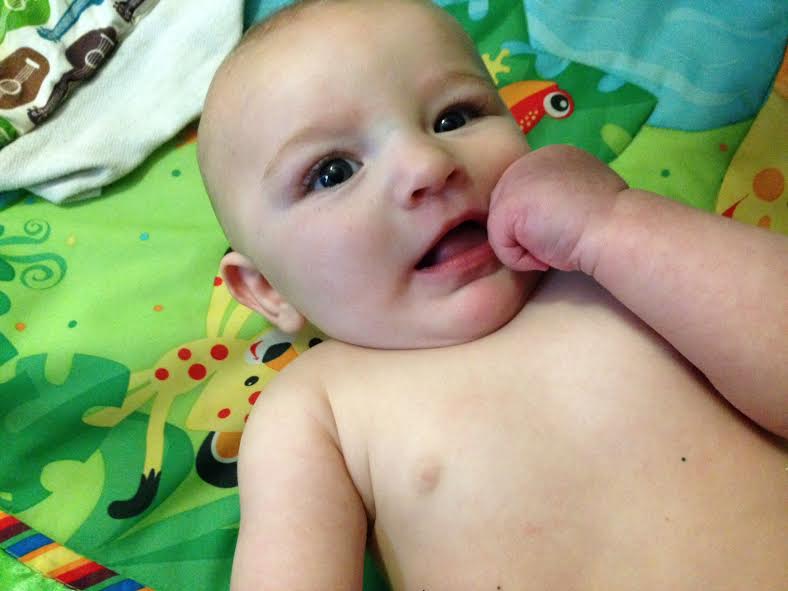
by Rachel Toalson | Messy Mondays
“One day, baby,” he says.
“One day, what?” I say, because usually this ends in something like “One day we’ll go to Paris” or “One day we’ll take a weekend to New York” or “One day we’ll have a clean house,” but it’s too early in the morning for dreaming big like that.
“One day we’ll be able to walk around our house and not get glitter on us,” he says.
Two of our boys got into glitter the other day. We left them downstairs for their Quiet Time with explicit instructions about what was expected and what they were allowed to play with. Glitter was most definitely not on the list.
An hour later, when we came back downstairs to check on them, green glitter was everywhere, in little neat piles. But everyone who knows glitter knows it won’t stay that way.
Now it’s everywhere.
(See the baby in the picture? If you look really closely, you’ll see some specks of glitter on his belly. This is not because we let him play with glitter, of course. It’s just that glitter.)
That night, we had glitter in our chicken soup, glitter in our water, glitter in our spice cookies for dessert.
There is glitter on my laptop. There is glitter on all our books. There is glitter on the seat of my pants and on every surface of my kids’ skin.
It’s been days, y’all. It doesn’t matter how many times we’ve wiped it up and thrown it in the trash. Glitter is persistent. It just keeps coming back.
“Hey, Mama, come look at my poop!” my 6-year-old said today. (This is not an unusual request in a household of boys. So, of course I did.)
There was glitter in his poop. Amazing.
I don’t know if we’re ever going to see the end of it.

by Rachel Toalson | Wing Chair Musings
“Do you work?”
We’re sitting at the pool. The boys are swimming with their daddy, but I’m sitting out with my four-month-old and this still-broken-but-almost-healed foot. A woman has just counted them all up and laughed about “all boys.”
The youngest smiles, because he’s joyful like that.
“Yes,” I say. “I’m a writer.”
“Oh,” she says, and it’s not a condescending sound, more of a surprised-mixed-with-wonder sound.
So I break the ice. “I need my work so I stay sane,” I say, and we spend the next ten minutes laughing about how we can only handle so much and how work feels like a vacation sometimes and how we are both better mothers for our out-of-the-home pursuit.
The truth is, my out-of-the-home pursuit is not just for me. It’s also for my family. For our finances.
My family needs my contribution to stay above water, so even if I did want to stay home, I couldn’t.
I wasn’t always okay with this reality.
///
Just before my first son was born, I took a job producing a newspaper for one of the Methodist conferences in Texas. It didn’t pay a whole lot, but it was steady and it took care of the electric bill and the water bill and the Internet bill and the grocery needs and the gas expenses.
And then my son crashed into our lives and the whole world turned upside down, and I just wanted to spend all my time with him. I didn’t care about promotions, didn’t care about accolades, didn’t care about anything except being present with my amazing little boy so I wouldn’t miss a single thing.
Except my husband didn’t make enough money to pay our bills on his own, and we needed two incomes. So I had to work. I had to keep my job.
I arranged a compromise with my boss: I would work part of the day in the office and part of the day at home so I could still hang out with my boy.
I had the best of both worlds, watching my son in the morning while working on the pieces of my job that didn’t require complete and uninterrupted concentration and letting my husband hang out with him while I went to the office in the afternoons.
We made our trade-off work. We divided chores. We supported each other in every way we could.
And yet something still felt wrong. Something still felt suffocating. I thought it was because I was still working. I was still a mom who had to work, and I was not made to work. I was made to raise my child.
A bitter ball settled in my throat.
///
We are mothers.
We can convince ourselves that the best thing in the whole world would be to stay at home with our babies and raise them to love reading and teach them how to write in journals and shape them into people we actually want to hang out with when they’re older.
This is what mothers are supposed to do, after all. It’s our duty. Our calling. Our inheritance.
Sometimes it’s possible to find a way to stay at home, if we look hard enough. Sometimes it’s just not, because health insurance premiums went up too high and the cost of food has increased outrageously and the car needs some unexpected repairs we didn’t anticipate in the budget we made last month.
And when the finances fall short and we realize we can’t stay at home because more than one income is necessary to care for our family, we can sometimes get wildly bitter about it.
If only our circumstances were different. If only our husbands had chosen a different career. If only he made more money.
If only…
It’s not easy to pull ourselves back out of this if-only pit.
///
Six months ago I was laid off from the job I’d had for nearly nine years. We found out about the layoff a few months in advance, so I spent the last months there feeling sad and out of sorts and terribly unmotivated. I wanted to finish well, but how do you finish well when someone doesn’t want you?
In the meantime, I was searching for a new job, because my income was still necessary for our family. The old bitterness was rising up to meet me.
There was a day, close to Christmas, when I came home from work especially drained and sad and maybe a little angry, because the bad news about the layoff had been repeated in different terms. I could practically see the walls shaking as I walked up to my door.
I put the key in the lock, and I could already hear the world falling apart into hysterical laughter.
Then I opened the door, and there was my husband, in the middle of all my boys, except the one I still carried, doing “The Robot.”
“Dance party!” he said.
I just stood in the doorway watching my boys giggle and rearrange their daddy, watching them all dance, watching those faces that glowed with such happiness I could hardly handle it. An overwhelming wave of gratitude knocked all the bitter from its stronghold.
They might have missed this, I thought.
They might have missed sharing such a sacred time with their daddy if I weren’t a working mother.
They might have missed.
It was the first time I really felt glad that I had worked all these years. Glad that my income was necessary to raise my growing boys. Glad that my husband had THIS time with them.
Just glad.
///
We don’t have to feel guilty or bitter or angry about working outside the home, because our working gives a gift to our husbands.
It gives them the opportunity to be present with their children, to play with their children, to share in the raising responsibility of their children that will change lives forever.
I think I need to say that again, mostly for myself: WE DON’T HAVE TO FEEL GUILTY. WE DON’T HAVE TO FEEL SHAMED. WE DON’T HAVE TO FEEL BITTER.
We are letting our husbands be intentional dads, letting them take their important place beside us in this journey of training up a child in the way he should go.
That’s the picture I got, all those months ago, when I walked into my house with bitterness in my hands and saw why the walls were shaking.
It’s not unusual, today, to see dads who stay home with their children. And while many shake their heads and say it’s just another way women are taking over the workforce, I can’t help but think that a generation of involved dads is so much better than a generation of disinterested ones.
It means we get a whole generation of children who grow up with present dads, not absent ones. It means we get boys and girls who know who they are because their moms AND their dads have spoken it into their lives with not only words but also time. It means we get little ones who recognize how valuable they are to their moms AND their dads and, by extension, the world.
This is a worthy shift.
So today I am thankful for my split-down-the-middle day. I am grateful that I get to work.
Most of all, I am glad that my husband gets the privilege of speaking into the lives of his children in ways that mean life and freedom and love.
I’ll go to work any day for that.
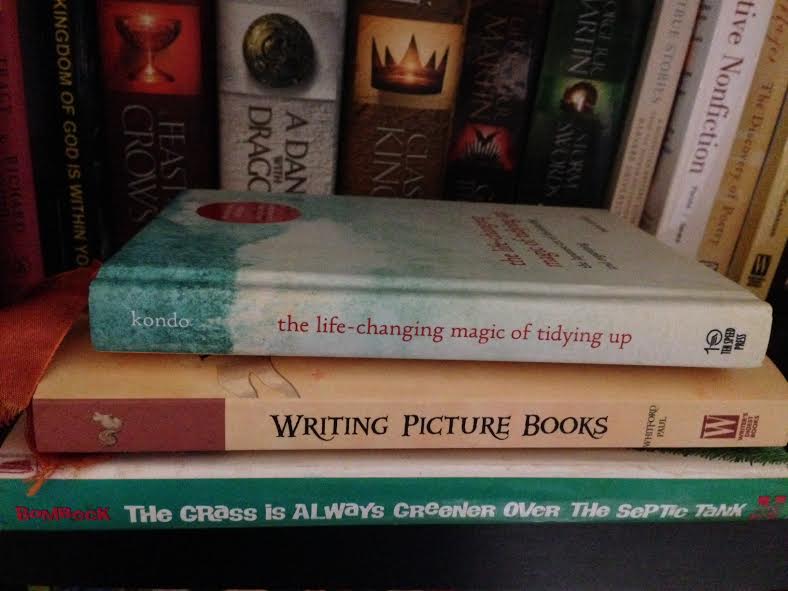
by Rachel Toalson | On My Shelf
On my shelf this week:
The Life-Changing Magic of Tidying Up: The Japanese Art of Decluttering and Organizing, by Marie Kondo
Writing Picture Books: A Hands-on Guide From Story Creation to Publication, by Ann Whitford Paul
The Grass is Always Greener Over the Septic Tank, by Erma Bombeck
On the first one: does she have children? Is she even married? I would love to see this book written for a large family of five or more people. I would love to know it’s possible to have a tidy home with children. Nevertheless, I’ll be trying her technique. This summer we’re pulling everything out and deciding whether or not to keep it, and we’ll be including the children in the process, too. It’s time to reduce. Paul’s book is one I’m reading because I’m working on a couple of children’s manuscripts. It’s been helpful to look at my technique and some of the technical details of writing children’s books. Bombeck’s book is just for fun, because I love her humor.
Best quotes so far:
“Children care deeply. Tap into their strong emotions for your stories.”
Ann Whitford Paul
“Writers don’t need to explain too much. Children are wise enough to figure out what a story is about without tacking on a moral. We’re in the business of writing engaging stories, not teaching lessons. Leave that to education.”
Ann Whitford Paul
“Enduring picture books must be about something bigger than a mere incident. The story problem must explore some large theme or issue. It must have a kernel of truth about life and our world.”
Ann Whitford Paul
“The writer must have an idea, or theme, in the back of her mind that she’s investigating. She must have something that will turn such a set of incidents into a story that stays with the reader long after the book is closed.”
Ann Whitford Paul
Read any of these? Tell us what you thought.











